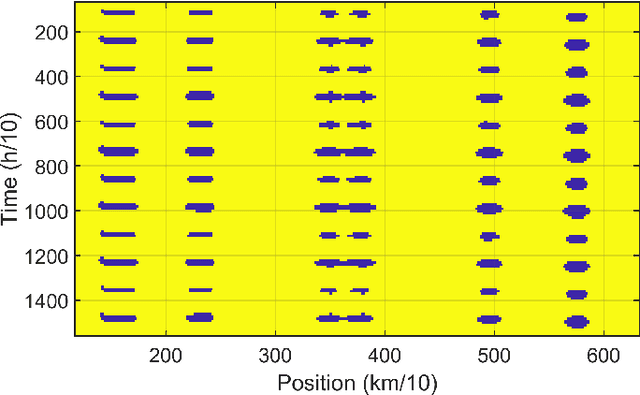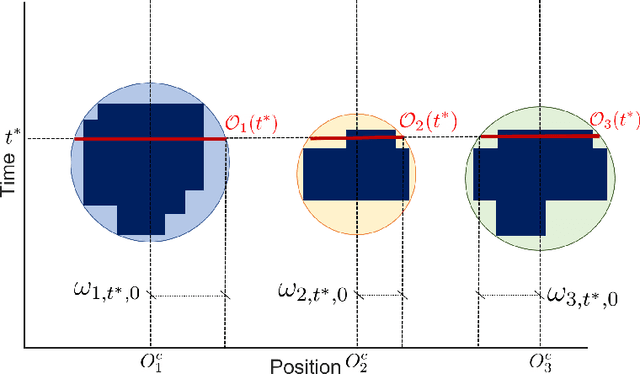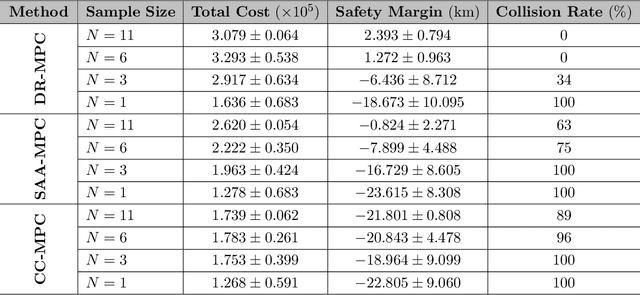Daniel Limon
Risk-Aware Wasserstein Distributionally Robust Control of Vessels in Natural Waterways
Oct 21, 2023



Abstract:In the realm of maritime transportation, autonomous vessel navigation in natural inland waterways faces persistent challenges due to unpredictable natural factors. Existing scheduling algorithms fall short in handling these uncertainties, compromising both safety and efficiency. Moreover, these algorithms are primarily designed for non-autonomous vessels, leading to labor-intensive operations vulnerable to human error. To address these issues, this study proposes a risk-aware motion control approach for vessels that accounts for the dynamic and uncertain nature of tide islands in a distributionally robust manner. Specifically, a model predictive control method is employed to follow the reference trajectory in the time-space map while incorporating a risk constraint to prevent grounding accidents. To address uncertainties in tide islands, a novel modeling technique represents them as stochastic polytopes. Additionally, potential inaccuracies in waterway depth are addressed through a risk constraint that considers the worst-case uncertainty distribution within a Wasserstein ambiguity set around the empirical distribution. Using sensor data collected in the Guadalquivir River, we empirically demonstrate the performance of the proposed method through simulations on a vessel. As a result, the vessel successfully navigates the waterway while avoiding grounding accidents, even with a limited dataset of observations. This stands in contrast to existing non-robust controllers, highlighting the robustness and practical applicability of the proposed approach.
Online Gaussian Process learning-based Model Predictive Control with Stability Guarantees
Nov 08, 2019



Abstract:Model predictive control provides high performance and safety in the form of constraint satisfaction. These properties however can be satisfied only if the underlying model used for prediction of the controlled process is of sufficient accuracy. One way to address this challenge is by data-driven and machine learning approaches, such as Gaussian processes, that allow to refine the model online during operation. We present a combination of a output feedback model predictive control scheme, which does not require full state information, and a Gaussian process prediction model that is capable of online learning. To this end the concept of evolving Gaussian processes is combined with recursively updating the posterior prediction. The presented approach guarantees input-to-state stability w.r.t. to the model-plant mismatch. Extensive simulation studies show that the Gaussian process prediction model can be successfully learned online. The resulting computational load can be significantly reduced via the combination of the recursive update procedure and limiting the number of training data points, while maintaining performance at a comparable level.
 Add to Chrome
Add to Chrome Add to Firefox
Add to Firefox Add to Edge
Add to Edge